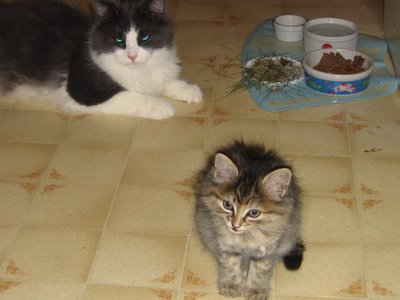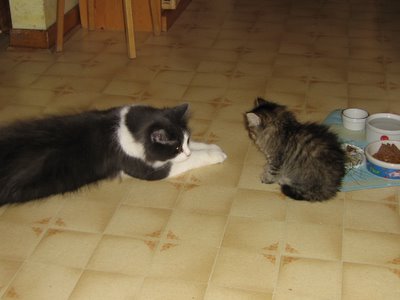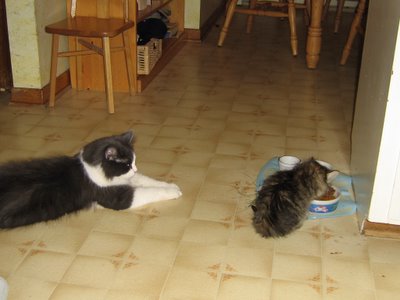Strain
Still, without benefit of a mirror I can easily reel off all of the things I might change, given the opportunity. Starting at the top, they include a permanent red spot on the left side of my forehead; a brow pleated by worry: a furrow between my eyebrows so deep that at times it could be a coin slot; purple hollows underneath my eyes that I've had since infancy, and, also since childhood, lines like surveyors marks on my cheeks -- placeholders for the inevitable eye bags I will have; a nose more fleshy and wide than prototypically Semitic, graced with a bouquet of tiny gin blossoms resulting from years of using neither sunscreen nor moisturizer; a set of those Fred Flintstone nasal creases down to the corners of my mouth; a permanent acne scar on my right cheek; a plank-like expanse of filtrum between the bottom of my nose and the top of my too-thin upper lip; and, in profile, a double chin.
The word that threw me was "filtrum". Upon reading it, I thought it was wrong, and to be honest, I'm still not sure it isn't wrong on some fundamental level, even though there's support for his usage.
"Filter" has a straightforward enough etymology--from Latin through French--and, fascinatingly, it's related to "felt", from which the original filters were made before porous paper was invented. "Philtre", on the other hand, is from the Greek "philos", "loving" (as in "oenophile", "wine-lover", or "philosophy", "the love of wisdom"): a philtre is a love-potion. "Philtrum" is derived from "philtre" and is the little vertical groove that connects the nose to the centre of the upper lip, its enchanting name obviously bestowed by someone intoxicated by his or her beloved.
Because of the endless vagaries of English spelling, though, "filter" was once upon a time occasionally spelled "philter" (and also "filtre", because we got it from the French). If I'm reading this correctly, dentists appear to use "filtrum" to refer to the indentation itself and "philtrum" to refer to the entire area, although that could be the doing of the dictionary's authors rather than the dentists' hair-splitting. (It doesn't seem like a useful or necessary distinction to me, but I'm not a dentist.)
In any event, the two words seem to me different enough to be kept properly separate. "Filtrum" plainly owes a debt to "filter": even if the spelling isn't technically wrong, even if there's precedent for its usage, I'd be a lot happier retaining the unimpeachably correct spelling "philtrum" for that little dab of skin.



